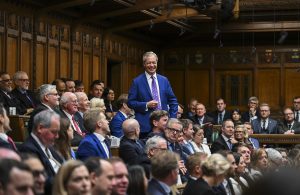Microgeneration is climbing the political agenda. Since the UK legislated to reach net zero, small-scale, renewable generation is increasingly being seen as the way to decarbonise. The vision being presented is of a smart, flexible energy system powered by local communities. However, in reality, the UK isn’t ready. Decarbonisation of existing infrastructure (through CCUS and BECCS) and support for large scale renewables is likely to be a safer, securer path to reaching net zero. As future energy systems are currently up for debate, now is the time for large-scale generators to argue their case.
Decentralisation does not guarantee decarbonisation
Part of the reason for the recent emphasis on microgeneration is the drive to reduce greenhouse gas (GHG) emissions. However, the Government needs to be reminded that microgeneration alone is not the solution. Two pathways in this year’s ‘Future Energy Scenarios’ (FES) envisioned increased decentralisation, however, only one of them reached the 80 per cent reduction target. [1] This is the same success ratio as for the other pathways, both of which advocated more centralised, larger-scale methods of generation. Strategies other than microgeneration, such as CCUS, are needed to guarantee that the UK meets its climate goals. Now is the time to lobby and ensure that alternatives routes to net zero are not overlooked.
Decentralised black start capabilities may be possible, but they’re not currently viable
A key component of any energy system is security of supply. In the case of a total or partial shutdown of the National Electricity Transmission System, it must still remain possible to restore electricity supplies in a timely and orderly way. Microgeneration makes this challenge harder. A report published by National Grid ESO on restoration from distributed energy resources (DERs) states that there are ‘significant technical, organisational and commercial challenges’ [2] involved in the decentralisation of Black Start provisions. Government needs to be reminded of the scale of changes required, as well as the strengths of the current system.
Microgeneration is not supported by current policy
Currently, the Government’s vision of small scale generation conflicts with policy. The decision to scrap Feed-In Tariffs in favour of the Smart Export Guarantees means that microgeneration is less lucrative and higher risk than it has previously been. In order to ensure enough people are producing energy at a local level, the policy framework needs to be changed. Until this change happens, centralised generation remains a necessary, reliable source of electricity that can help the UK decarbonise in a controllable manner. This is the case investors in this generation should be making.
Brevia Consulting provides straightforward political advice and support to business and organisations.
Discover how Brevia can help you and your organisation by contacting the Brevia Energy Team on 020 7091 1650 or contact@brevia.co.uk
[1] National Grid ESO, Future Energy Scenarios, July 2019.



